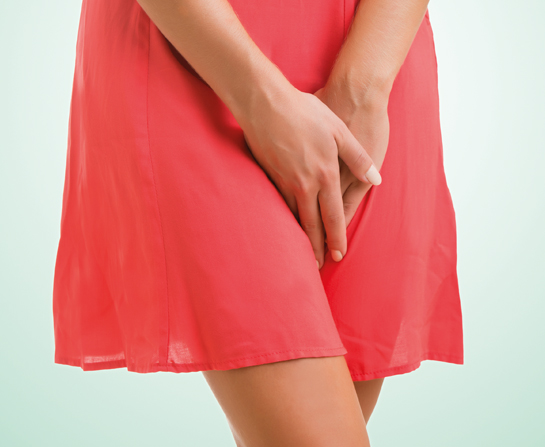What’s That Itch Down There?
April 28, 2022 Return


Dr. Kim Wong Consultant Obstetrician & Gynaecologist
An Infection Down South
HT: What is vaginitis?
KW: Vaginitis generally means discomfort and the soreness that an infection can bring to the vagina. It is a condition where the vaginal lining wall becomes inflamed which then, results in discharge, itchiness, and pain. The types of infection that can cause vaginitis are:
- Bacterial
- Fungal
- Parasitic
- Viral
And, these infections can arise from:
- Constant exposure to contaminated water
- Wearing unhygienic undergarments
- Sexual intercourse
Vaginitis can happen to women of any age.
HT: What happens when one has vaginitis?
KW: For starters, the bacterial flora that lives in the vagina plays an important role in maintaining and protecting your vaginal health. Once the flora is disrupted as a result of an infection, the damaged vaginal wall is no longer a feasible home for the good bacteria. The bad bacteria then have the opportunity to invade and secrete toxins that can kill some of the good bacteria residing in the vicinity. And, this is when the inflammation worsens.
The prescription of certain antibiotics to counter vaginitis will not make the situation any better either. They cannot tell the difference between good and bacteria, so they end up killing off more of the already depleted good bacteria population – contributing to the vicious cycle of vaginal infection.
HT: What are the complications that can occur?
KW: In severe cases, the infection can spread to the cervix, uterus, endometrium, the fallopian tubes and even, the pelvis (abdominal cavity) and become an abscess. It can cause
- Infertility
- Ectopic pregnancy
- Lifelong chronic pain in the abdomen
- Pelvic inflammatory disease
- Pelvic abscess
- Increased risk of HPV infection and cervical cancer
Doing Away with Vaginitis
HT: How can a woman tell that she has vaginitis?
KW: The vagina should be clean and dry under normal circumstances. The following may be signs that something is not right:
- Itchiness.
- Pain during sexual intercourse.
- Lower abdominal pain.
- Pain when passing urine.
- Vaginal discharges that are of greenish, dark yellow or brown-red in colour with a cheesy- or tofu-like texture occurring for more than a week.
- Unpleasant odour that is comparable to that of a dead fish or stale food.
- Abnormal bleeding from the vagina.
HT: How is vaginitis treated?
KW: The majority of infectious vaginitis cases are treatable by taking oral antibiotics. In severe cases, however, an injection may be required.
Most acute vaginitis cases (80%) are easily treatable with the appropriate anti fungal or antibiotics. However, some will develop into chronic vaginitis or recurrent vaginitis.
About 20% of these recurrent cases may need further medical treament. But then again, there are about 3-5% of vaginitis cases which are hard to treat as the infection will recur regardless. This can be due to weak immunity. These women are just prone to infections or have a sensitive vagina, where it is easily irritated.
HT: Can vaginitis go away on its own?
KW: If you have a strong immune system and the bacteria causing the infection are non-aggressive, then yes, it will clear off on its own. Furthermore, the good bacteria living in the vagina wall can produce a form of “antiseptic” (a combination of hydrogen peroxide and lactic acid) that can help get rid of the bad bacteria.
HT: Will it be back for a “return visit”?
KW: Unfortunately, vaginitis can recur in some people. Their body does not develop immunity against the bacteria that cause vaginitis.
HT: Any advice for women who are too shy to see a doctor about their condition “down below”?
KW: Speaking up about your condition, especially if its related to your private parts, can be hard and it does take a lot of confidence to voice out. But, vaginitis is a condition that can become chronic and may even affect your pregnancy chances. The only way to reduce this risk is to seek early treatment. Visit a doctor with whom you feel comfortable to share your condition.
HT: Any prevention tips?
KW: You can prevent vaginitis with the following:
- Have protected sex. Use a condom or diaphragm to avoid transmission of any bacterial, fungal, parasitic or viral infections.
- Ensure your undergarments are clean and dried preferably under the sun as UV light is able to kill the germs.
- Pantyliners, when not menstruating should be changed regularly, preferably once every 4 hours. Remember not to wear one to sleep; you should go for about 10-12 hours without a pantyliner.
- Use a feminine wash. Choose a product that mimics the normal vaginal pH level and falls within the acidic pH range of pH 3.8 to 4.5.
- Take one capsule of probiotics per day; choose one that contains Lactobacillus Acidophilus as this bacterial species is commonly found in female genitalia.
- Regularly insert a vaginal pessary that contains Lactobacillus Acidophilus
- Undergo a Pap smear test at least once every 1- 3 years.
If you like this article, do subscribe here.
